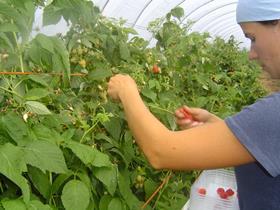
Employers in the UK are concerned about what the UK’s future migration system will look like after Brexit, a new government report has warned.
The Migration Advisory Committee said businesses were worried about whether they will be able to recruit from EU countries, with UK employers tending to see EU workers as more reliable than their British counterparts.
Many employers mentioned that migrants from the European Economic Area were more willing to work long and anti-social hours than UK-born workers.
The committee pointed out that it was “hard to assess objectively many of these claims”, however absentee rates support employers’ assessment. EEA migrant workers missing work less often, even when accounting for differences in age, industry and occupation.
When it comes to pay, the report found that EU migrants from the original EU member states are paid 12 per cent more than equivalent UK workers, whereas those from newer member states are paid 27 per cent less.
The latter figure will apply to the majority of migrant employees in the fresh produce sector, many of whom come from more recent EU member states such as Romania and Bulgaria.
In the agricultural and horticultural sectors employers warned that rising wages would be passed on to consumers, causing price increases and inflation.
G’s said it was inevitable that “disruption to supply or skill level of seasonal labour will have immediate consequences for the average consumer's shopping basket.'
Meanwhile, Kent cobnut and cherry grower Roughway Farms said: “Failure to quickly address the issue will see less fresh produce consumption with implications on health, more imports, higher prices and more supply uncertainty.”
Angela Coleshill, competitiveness director at the Food and Drink Federation welcomed the report, saying UK food and drink businesses were “rightly worried about what a future migration system might look like”.
““We employ 117,000 highly valued EU workers within the food and drink sector, and they play a vital role in guaranteeing the success of the £112 billion 'farm to fork' food chain,” she said.
“Our industry has faced a skills gap for some time. Food and drink manufacturing will require 140,000 new workers by 2024 to meet the needs of a growing sector requiring more highly technical skills and to manage demographic change.”
Coleshill called for more clarity on what the future immigration system will look like, explaining that food and drink manufacturers often plan their workforce needs more than a year in advance.
She added: “Short-term, the government must move swiftly to set up the new registration system and provide clear guidance to workers and businesses so that our valued EU workforce and those arriving during transition have the security they need.
The report, commissioned by the Home Secretary Amber Rudd, gathered views from 400 businesses, industry bodies, government departments and other organisations.
The Home Office welcomed its findings and said they would “provide an evidence base for a new migration system”, however the department has repeated a commitment to “sustainable migration”.






No comments yet